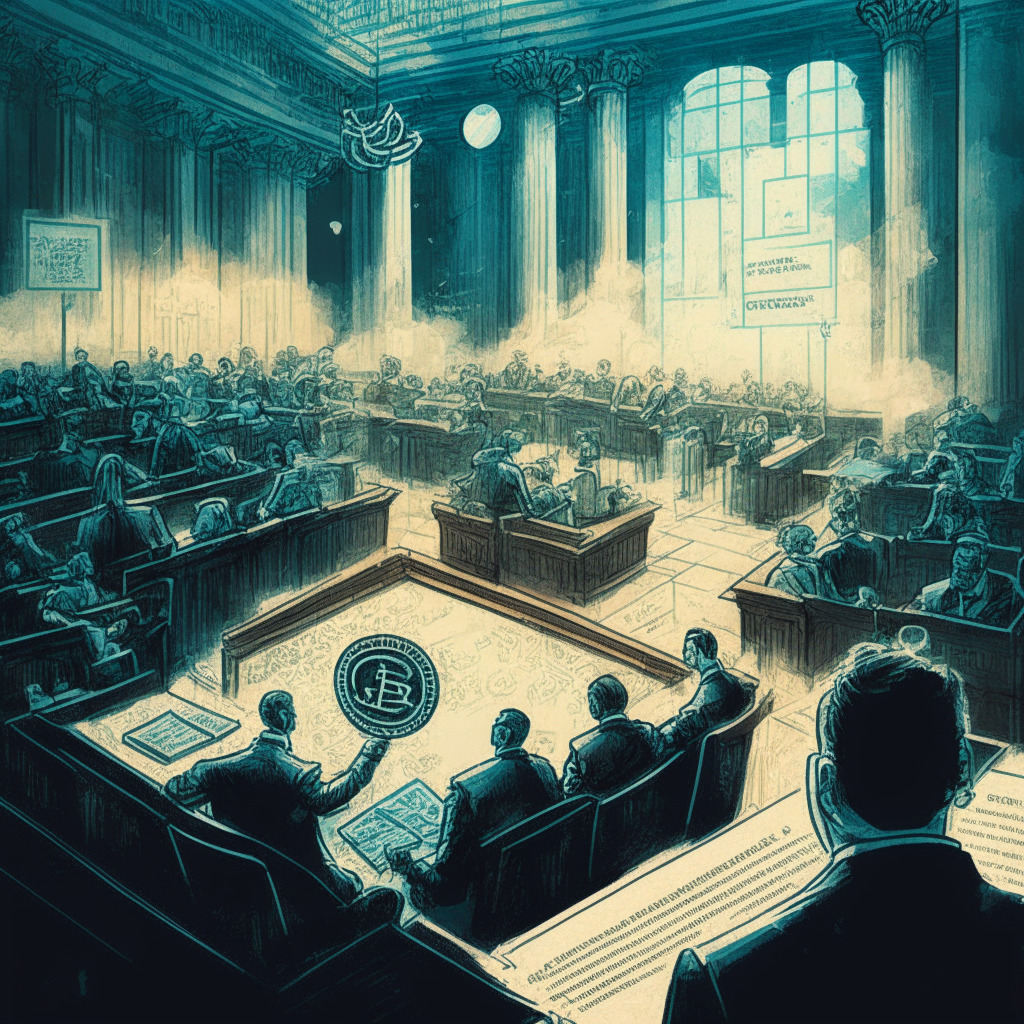A high-profile class action lawsuit against Uniswap – the decentralized crypto exchange, witnessed a downpour due to an adverse ruling. The crux of the dispute waved around federal securities laws, which, according to the judge, provided an unclear path for the plaintiffs to sue the real defendants. This ruling indeed kicked up a storm in the crypto world and is expected to make a return appearance in other legal battles involving securities laws and crypto entities.
It all started when a group of crypto investors aspired to hold Uniswap responsible for the “scam tokens” traded on the platform. However, Judge Katherine Polk Failla opposed the arguments, indicating that the real culprits were the issuers of these tokens, instead of Uniswap. Now, one would wonder why didn’t the investors sue the issuers instead? Well, the identities of these issuers, thanks to the decentralized nature of the protocol, are nothing but a mystery, leaving the plaintiffs in a limbo with an identifiable injury but no identifiable defendant.
The court leaned towards the fact that the underlying smart contracts of Uniswap and its liquidity pools did not directly wound to the investors, drawing a slick line of distinction between the platform and token issuers held liable. Taking a poke at the securities law, the judge further added that it might not be the fitting authority to define the roles of token issuers or Uniswap within the law. The doubts also abound around whether the token issuers should be viewed as securities, commodities or an entirely different entity – a dilemma yet to be resolved by the Congress and the court.
This ruling by the judge raised a question mark over the jurisdiction of regulatory bodies like the U.S. Securities and Exchange Commission (SEC) over crypto token issuers or third-party trading platforms. Though the judge did acknowledge the possibility that someday regulators might clear this gray area, pointing out that SEC chairman has already cautioned DeFi projects of increased scrutiny.
Still, the straight face reality now stands – even the creator of the computer code underlying a software platform can potentially escape the legal repercussions of a third-party’s misuse of that platform. Needless to say, this turn of events adds a new twist to how liability is perceived in the context of evolving technology and regulations in the crypto sphere. With the ball now in the court of legislative bodies, it remains to be seen if this legal hiccup paves the way for a more comprehensive approach, or further slackens the regulatory strings in the world of cryptocurrency.
Source: Coindesk




